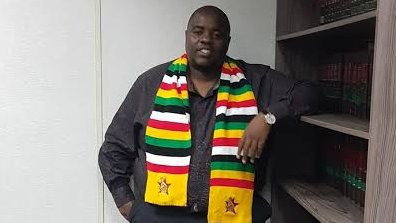
It is the mid-1980s in Zimbabwe. The country is still enjoying the fresh fruits of independence. Beer spots — rural or urban — are teeming with imbibers, young and old.
BY TAPIWA ZIVIRA
Sungura bands are among the most popular providers of entertainment and interestingly, despite having old equipment and funny outfits, these bands are known to deliver the best to keep the crowds agog right through the night.
Striking, though, about these bands is their interesting names — Devera Ngwena Jazz Band and Blues Revolution Band, which all play nothing to do with jazz or blues music.
After years of playing at nightclubs in places like Machipisa, Highfield, and remaining “just one of those” many sungura outfits, the Blues Revolution Band, strike gold.
The band releases the song, Kana Ndoramba Mukadzi, a sungura composition so rich that all its elements — the heavy bass line, the high-pitched lead and the pulsating rhythm guitars and smooth vocals — sync together so well.
Because of this, Kana Ndoramba Mukadzi is an instant hit and takes the band to the top.
But for many Zimbabweans who lived during this time, this was to be the last they heard of the Blues Revolution. The Standard Style caught up with a former member of the band — Mabasa Mambiravana — who did vocals, rhythm and sometimes bass guitar on several of the band’s songs.
- Chamisa under fire over US$120K donation
- Mavhunga puts DeMbare into Chibuku quarterfinals
- Pension funds bet on Cabora Bassa oilfields
- Councils defy govt fire tender directive
Keep Reading

Now 54, Mambiravana, who lives at his rural home in Zvimba, and shows all signs of poverty typical of many former members of the great musical bands of the 80s and 90s, he narrates his and Blues Revolution’s musical journey while sipping opaque beer at Gazaland Shopping Centre in Highfield, Harare, where, ironically he started his musical career.
“I started my career at a place then known as Pamazai or KwaMuteyeswa,” he says, pointing to the nearby popular chicken and egg market at Gazaland.
“We later went to Machipsa where we joined the Blues Revolution together with David Banda, Gerald Sangombe, Peter Tsvere, Clive Malunga, Ketai Mutimbiriri, Gabriel Dzimbiri, Martin Petros and others. We played at a night-club at Machipisa and this is the time when we released Kana Ndoramba Mukadzi and the album Sarunde.”
The group moved to Chimoio and Tete in Mozambique and played anti-Renamo tracks like Huya Uone Kurohwa Kunoitwa Renamo.
Sadly, these were to be the last days of the band.
“During that time, we had challenges acquiring our own musical instruments and we had to rely on using kits owned by night clubs in which we played, and this meant as soon as our contract to play in any bar ended, it meant we walked away with nothing,” he said.
“Often also, because we did not have instruments, it meant we signed contracts that were to our disadvantage, financially. We even struggled to pay rentals”.
Mambiravana said because of the financial challenges, he and members of his band spent a lot of time in their respective rural areas.
“I spent some time in the rural areas because I also had a family that needed fending for, so at times I even did zvemagarden kumusha [rural gardening] and would come back to the city only when we had a contract with a night club,” he said.
Mambiravana narrates how the fate of Blues Revolution was like several groups of the 1980s, whose members lived artificial lives of fame and glamour on the stage, while behind the scenes it was a tale of abject poverty, financial mismanagement, promiscuity and recklessness on the part of band members.
“We were popular, but in reality we lived ordinary lives,” he said.
According to Mambiravana, the trigger to the end of the Blues Revolution was the departure of the Kana Ndoramba Mukadzi composer Mutimbiriri.
“I last saw Mutimbiriri and others around 1989 when he and others moved to Goromonzi, and I moved to Zvimba and since then we have never met,” he said.
For years, Mambiravana has remained in the musical wilderness, together with some living members of the Blues Revolution.
As he sipped his beer, Mambiravana could not wait to share his ambitious desire to come back to the limelight.
“I have not lost my musical touch and I am looking forward to reuniting with some of my former colleagues at Blues Revolution and so far, I am in touch with Sangombe, and the late Tsvere’s young brother. I also hope to join hands with some former members of Barura Express and James Chimombe’s band, among others,” he said.
His hope is to revive the fading flame of sungura, a genre that he remains in praise of.
“Sungura is everywhere and it transcends ages. In the next three months or so, I hope to have achieved my dream of assembling a sungura band, but the first point of my plan is to go to Radio Zimbabwe and participate in the Dzemagitare programme to get myself back in the limelight.”
After taking his last sip of beer, Mambiravana teeters to the balcony of the bar, and looks at the egg and chicken market where his career started and if his thoughts were to be read, perhaps his mind is on whether this time it will take off like it did the last time.











